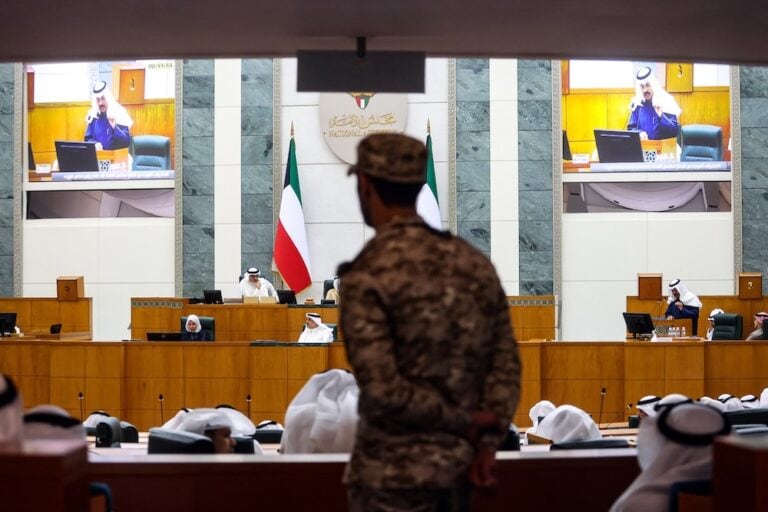Three daily papers and a television station are under threat of judicial proceedings launched by the information minister, Sheikh Hamad Jaber Al Ali Al Sabah.
(RSF/IFEX) – 7 February 2012 – Reporters Without Borders wishes to express its concern over moves taken against a number of media organizations during the campaign for the parliamentary elections held on 2 February.
While the country heads the list of Arab states in the 2011 world press freedom index , the heightened political tension surrounding the elections had an impact on the media and Reporters Without Borders recorded several infringements of press freedom.
Some analysts believe the victory of tribal-based and Islamist candidates is a cause for concern as far as the future of press freedom is concerned.
Reporters Without Borders urges the Kuwaiti authorities to abandon all proceedings pending against the media and to continue to enforce the principles of media pluralism and independence.
Three daily papers and a television station are under threat of judicial proceedings launched by the information minister, Sheikh Hamad Jaber Al Ali Al Sabah.
On 1 February, the newspaper Al-Qabas reported that the minister had suspended publication of the daily Al-Dar because of two reports deemed to promote discord between communities and incitement to public disorder and to advocate hatred of some religious groups and elements of society.
The information minister was reported to have launched the proceedings in the interests of national security and civil peace under provisions in the penal code and a 2006 law that regulates printing and distribution.
Like Al-Dar, the satellite channel Scope TV was also reported to be the subject of a prosecution since it broadcast comments by a candidate in the third electoral district, Mohamed Al-Jouwaihel, a liberal fiercely opposed to tribal control of politics who was reported to have strongly criticized the tribes involved.
In the wake of his comments, supporters of tribal leaders set fire to the candidate’s premises. According to the newspaper Al-Qabas, the information minister was due to hold a meeting of legal advisers to hand the case over to the public prosecutor.
The government clearly indicates its misgivings when the media are critical of the rise in tribal power.
On 31 January, about one thousand tribal supporters stormed the offices of the television station Al-Watan when a televised debate was due to take place between two candidates, Islamist-backed Faysal Al-Muslim and Nabil Al-Fadl, a pro-government candidate opposed to the Motairi tribe.
Security forces were unable to control the number of demonstrators that invaded the premises. Fourteen members of the security forces and three journalists were injured, among them Yusuf Al Mutairi and the photographer Mohamed Al-Sharhan of the newspaper Al-Jarida who were taken to Farwaniya hospital. The violent intrusion forced the organizers of the debate to abandon the program.
These incidents marred the election campaign, at a time when the Kuwaiti press was particularly vocal in its attacks on corruption and vote-buying by some candidates. The journalists paid particular attention to the “pre-selection” of tribal candidates in the 4th and 5th electoral districts.
The media play a key role in Kuwaiti political life. They spare no effort in exposing corruption and abuses of power and can make or break governments.


